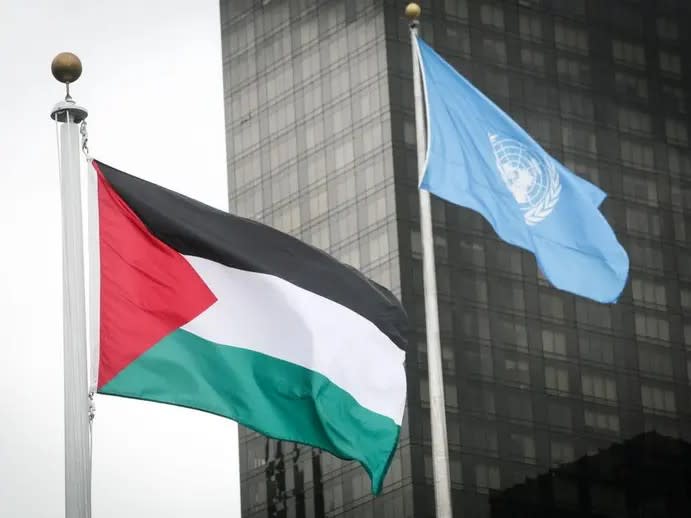The United Nations condemns the failure of the "Gaza Humanitarian Foundation" and warns of a complete collapse of communication services in the sector.

The United Nations criticized the performance of the "Humanitarian Gaza Foundation" supported by Israel and the United States on Friday, June 13, describing its work as a humanitarian failure during a press conference held by Jens Laerke, the spokesperson for the United Nations Office for the Coordination of Humanitarian Affairs (OCHA) in Geneva.
Laerke stated, "I think it is fair to say that the Humanitarian Gaza Foundation, in terms of humanitarian principles, has failed. They are not doing what a humanitarian operation should do, which is to provide assistance to people where they are in a safe manner."
In a related context, the United Nations warned yesterday, Thursday, of the halt of all relief operations in the Gaza Strip due to the collapse of communication services, hindering the coordination of life-saving aid.
The organization's spokesperson, Farhan Haq, in New York, explained, "All emergency communication lines, humanitarian aid coordination, and vital information for civilians have been cut off."
Haq added, "There is a complete internet blackout, and mobile phone networks are barely functioning," attributing this to damage to another fiber optic cable serving the central and southern areas of the Strip. Experts confirmed that this is not a normal disruption but a "complete collapse of internet and data services."
Haq pointed out that the damage may be a result of "intense military activity" amidst restrictions on aid access and widespread destruction, leading to a complete paralysis in relief operations.
He also mentioned that United Nations agencies, including UNRWA, have lost contact with their teams operating in Gaza, stating, "This applies to most agencies."
Earlier, the Palestinian news agency (WAFA) reported that all internet services and landlines were cut off after the last remaining fiber optic network was hit during an attack.
It is worth noting that communication disruptions have recurred since the beginning of the conflict in Gaza over 20 months ago, exacerbating the suffering of civilians trapped amidst deteriorating humanitarian conditions.